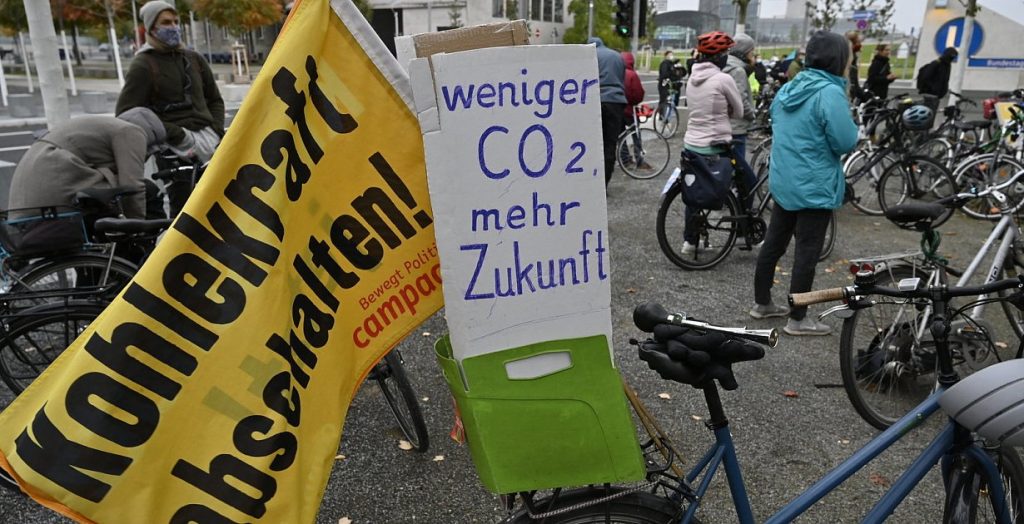Germany’s climate protection law violates the constitution in some aspects. The Constitutional Court criticized the fact that carbon dioxide savings and hence the burden will increase significantly from 2031. This particularly affects young people now. “Therefore, the legislature should have taken the necessary precautions to protect the guaranteed freedom mainly in order to alleviate these heavy burdens.” The statutory savings regulations from 2031 onwards weren’t enough.
Complaints against the law were filed about a year and a half ago. It was mainly young people who complained. They were supported by the environmental organizations Greenpeace, BUND, Deutsche Umwelthilfe and Germanwatch.
Karlsruhe: German climate protection law is partially unconstitutional.
“As a result, the burdens of high emissions cuts have been irreversibly deferred to the post-2030 periods. In order to protect basic rights, the legislature should have taken precautions to reduce this burden.” pic.twitter.com/uvj7XopGOt?? KLIMA ° before the eighth (KlimaVorAcht) April 29, 2021
The judges decided that the law served to protect the people. The ruling stated that “the complainants, some of whom are still young, violate their freedom-related rights through the contested rulings.” The legislature must now improve the law by the end of 2022.
The senior judges declared that “the regulations irreversibly postpone the burden of reducing high emissions to periods after 2030” Limiting the increase in global average temperature to well below two degrees and, if possible, to 1.5 degrees, as planned, It will only be possible with increasingly urgent and short-term measures. “In practice, any freedom is likely to be affected by future emissions-reduction commitments, because nearly all areas of human life are still associated with greenhouse gas emissions and are therefore threatened by severe restrictions after 2030,” the statement said. In order to essentially preserve guaranteed freedom, the legislature had to take precautions “to relieve these heavy burdens.”
Reducing carbon dioxide emissions by 55 percent
The Climate Protection Act states that by 2030 carbon dioxide emissions must be reduced by at least 55 percent compared to 1990 levels. In addition, it sets specific upper limits for greenhouse gases for various sectors such as energy, transportation, buildings and agriculture. If this is not achieved in odd years, then there is a commitment to make improvements. The bottom line is that practically no more carbon dioxide should be emitted by 2050.
“The purpose of this law is to ensure that national climate protection goals and European goals are met,” says the Federal Ministry of Environment. According to the Paris Climate Agreement – which forms the basis of German law – the increase in average global temperature must be much less than two degrees and, if possible, to 1.5 degrees Celsius, in order to maintain the effects of climate change. As low as possible. (APA, reuters, DPA)

“Food practitioner. Bacon guru. Infuriatingly humble zombie enthusiast. Total student.”








More Stories
Kyiv: Russian Kursk offensive halted
US Presidential Election: Former US Government Officials Warn Against Donald Trump's Election
Netherlands wants to leave asylum system